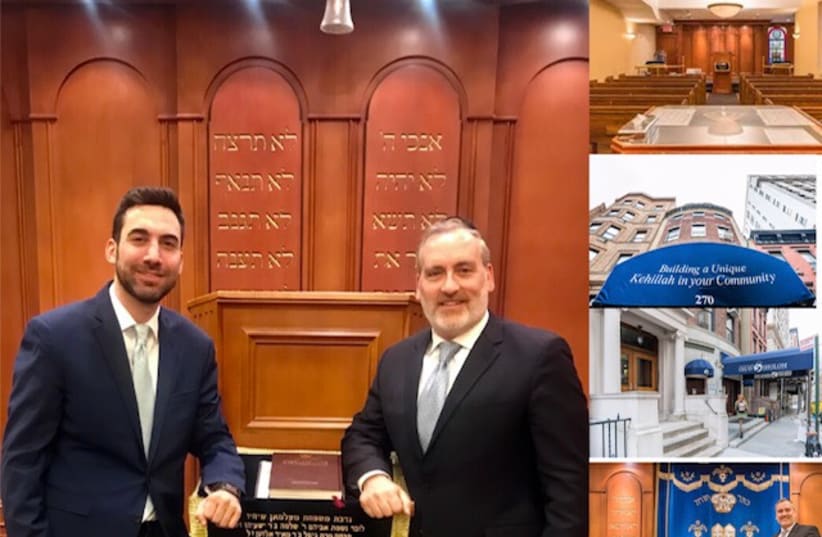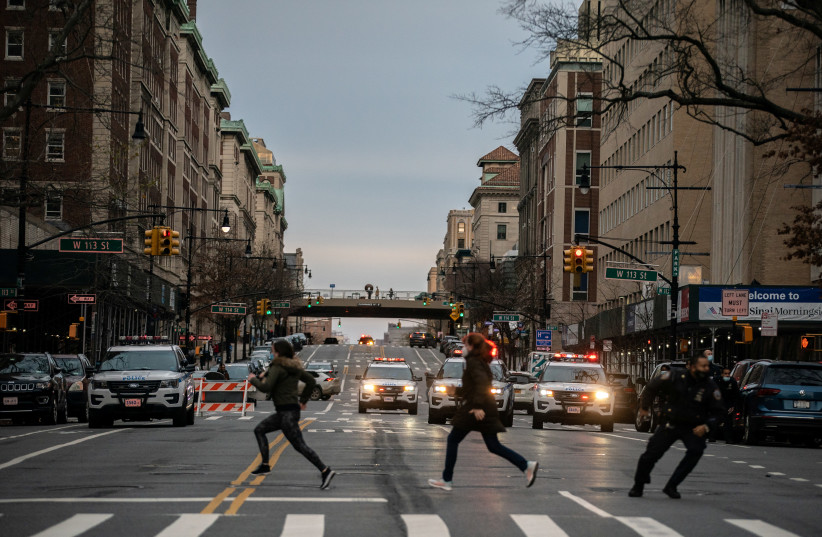Jews worldwide recently commemorated Kristallnacht (the “Night of Broken Glass).” The name refers to the wave of violent anti-Jewish pogroms that took place on November 9 and 10, 1938, throughout Germany, annexed Austria, and in areas of the Sudetenland in Czechoslovakia.
On that fateful night, some 7,500 Jewish-owned businesses, homes, and schools were plundered, and 91 Jews were murdered. An additional 30,000 Jewish men were arrested and sent to concentration camps.
Of the very few Jews who were able to escape the atrocities of the Holocaust, there was a small group that immigrated to the United States and settled in New York.
Congregation Ohav Sholom was founded in 1940 by a group of German Jews fleeing the horrors of Nazi Germany. Establishing a synagogue was a priority for them, and their legacy of Jewish identity and pride is alive and well today.
For the last 81 years, Ohav Sholom has grown into a beloved landmark and center of Torah on the Upper West Side, having welcomed thousands of Jews worldwide to participate in their warm services and study Torah in their beautiful Bais Medrash (Temple). The quaint and charming building provides a spiritual retreat from the noise and chaos of the big city.
At Ohav Sholom, they strive to make everyone feel like one of the family, while offering easy-to-follow prayer services. The shul is led by self-motivated men and women who wish to spread the wonder of Torah and raise Jewish awareness among the Upper West Side community.
In addition to their regular prayer services and Torah lessons, it also offers a delicious weekly kiddush, Shabbat morning children’s programs, regular singles events, Friday night dinners featuring engaging guest speakers, ongoing outreach programs, holiday celebrations, and much more. Leading the congregation for over 26 years is Rabbi Aaron Mehlman, with whom I have had the honor of studying on a daily basis, and have also recently become a member of his congregation.
Before becoming the rabbi of Ohav Sholom in 1995, Mehlman was the assistant rabbi at Flatbush Park Jewish Center in Mill Basin, Brooklyn, and a student of the Brisk yeshiva in Jerusalem, where he was a student of Rabbi Meir Soloveitchik. He spent six years at Beth Medrash Govoha of Lakewood, N.J., where he received rabbinic ordination from Rabbi Yaakov Forchheimer, Av Beis Din and Dayan in Lakewood yeshiva. He spent four years studying under the tutelage of Rabbi Shlomo Gissinger, a noted posek in Lakewood.
Mehlman pens a popular weekly column for the Flatbush Jewish Journal and is executive rabbinic director of National Kosher Supervision, a Kashrus company based in Manhattan. He is a member of the West Side Kollel, and delivers a daily Halacha lesson. He resides in Manhattan with his wife and aishes chayil, Rebbetzin Ayelet, and seven children and many grandchildren. I recently had the opportunity to sit down with Rabbi Mehlman.
How did you become the leader of this great and historic synagogue in Manhattan?
I was an assistant rabbi in a prestigious synagogue in Brooklyn. After two years, I desired to become a senior rabbi in my own shul and started the search process. After exploring some wonderful opportunities I discovered the Upper West Side and this amazing shul, Congregation Ohav Sholom. I was blown away by the enthusiasm and sincerity of its members and their passion to study Torah and grow as human beings and Jews.
What type of spiritual rebirth have you seen in the Jewish community in NYC over the past 25 years?
In general, the quality of young men and women coming to live here has increased dramatically. The Upper West Side always attracted spiritually curious people, and the truth-seekers are now of an even more serious nature. There are plenty of quality shiurim (lessons) and Torah study going on in every shul, and the people love it.
As you have led the community during corona and these challenging times, what are some words of strength you have given the congregants and community?
1. This too shall pass. We can survive anything with trust in the Almighty.
2. He can decide to “lock down” the entire world in an instant. Free movement and good health are a gift.
3. We should recognize the awesome power of God and humble ourselves before Him – and do teshuva, fast!
What is your vision moving ahead?
We’ve learned from the last two years that people crave human connection. A rav (rabbi) should supply this in copious amounts, constantly and consistently, in an effort to encourage and inspire every member of the Jewish people to connect with Hashem and embrace Him on the deepest level possible. I hope my “personal touch” will allow me to attract even more members and students, and continue the holy work I am privileged to do every single day!
The writer is a financial advisor who resides in New York City and is involved in Israel-based and Jewish advocacy organizations.

